Latest News
U.N. readies for more displaced Afghans after troop withdrawal
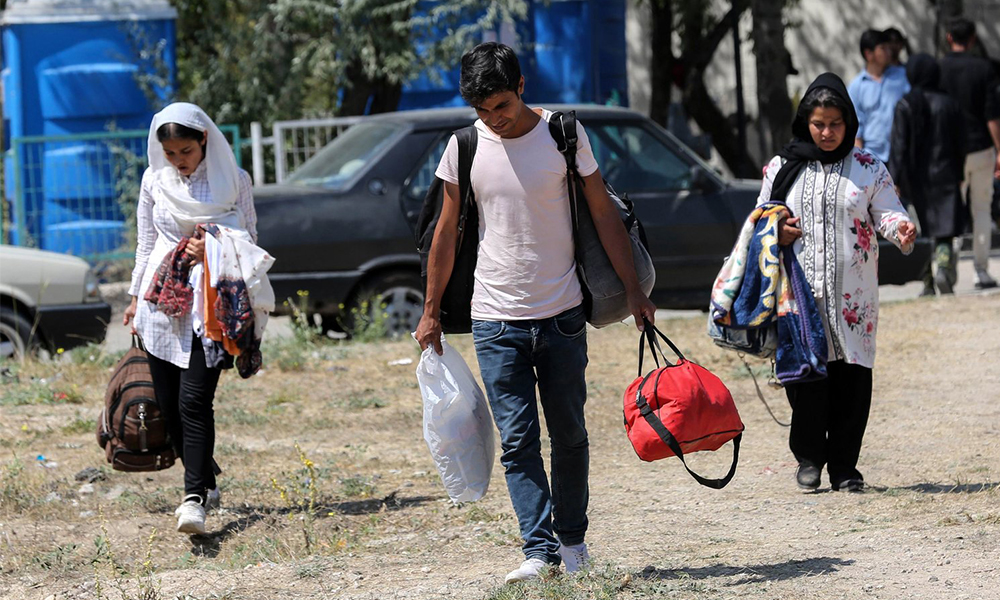
The United Nations is preparing for a likely further displacement of civilians in Afghanistan after U.S. and international troops leave the country in September, U.N. refugee chief Filippo Grandi told Reuters on Monday.
Violence has been rising as foreign forces begin withdrawing and efforts to broker a peace settlement between the Afghan government and insurgent Taliban have slowed.
Grandi pointed to a deadly attack last week on an international demining organization in northern Afghanistan, which killed 10 people.
“This is a tragic indicator of the type of violence that may be resurfacing in Afghanistan and with the withdrawal of the international troops this is possibly or likely going to become worse,” Grandi said.
“Therefore we are doing contingency planning inside the country for further displacement, in the neighboring countries in case people might cross borders,” he said, without offering details of those plans.
There are currently some 2.5 million registered refugees from Afghanistan globally, while another 4.8 million have been displaced within the country, according to the U.N. refugee agency UNHCR, which Grandi heads.
After 20 years, the United States has started a withdrawal of its remaining 2,500 troops in Afghanistan and aims to be completely out of the country by Sept. 11. Around 7,000 non-U.S. forces from mainly NATO countries – along with Australia, New Zealand and Georgia – are also planning to leave by Sept. 11.
Grandi said strong international support was needed for peace talks between the Afghan government and the Taliban.
“It’s political action that should substitute conflict but, of course, the risk (of further displacement) is there and we need to be prepared,” he added.
U.S.-backed Afghan forces toppled the Taliban in late 2001 for refusing to hand over al Qaeda leader Osama bin Laden after the September 11, 2001, attacks on the United States.
“What’s needed is a high level of economic support for Afghanistan humanitarian assistance to maximize the chance the Afghan authorities have to stabilize the situation,” U.N. aid chief Mark Lowcock told Reuters on Monday.
“There’s been very good and constructive outreach from the Biden administration, from the White House down, and we have actually had very productive discussions with them on that,” added Lowcock, who steps down from his role this month.
Earlier this month, the United States announced more than $266 million in new humanitarian aid for Afghanistan, bringing to nearly $3.9 billion the total amount of such aid it has provided since 2002.
Some 18.4 million people, almost half the country’s population, need humanitarian help, according to the United, Nations, which has appealed for $1.3 billion in funding for 2021. So far it has only received about 23% of that.
Lowcock said that until a few years ago there had been a lot of international attention in Afghanistan. That has “dissipated and weakened and that is a sort of problem when it comes to drawing attention to the needs of Afghanistan and getting support for them.”
Latest News
Donor community meet in Turkey to ‘plan and coordinate’ aid to Afghanistan
In 2024, humanitarian and basic human needs partners raised a collective US$3.21 billion in support of the Afghan people, exceeding funding levels of the previous year.

The Turkish Embassy in Kabul has confirmed that a two-day Afghanistan Coordination Group (ACG) Meeting is being held in Istanbul where the international donor community will look at priorities and plans around the situation in Afghanistan.
In a post on X, the embassy said the meeting would be held on Wednesday and Thursday and that it was important for the donor community to coordinate activities.
This comes just two days after the United Nations in Afghanistan (UNAMA) called on the international donor community to maintain critical support for the Afghan people, 22.9 million of whom are in need of assistance in 2025.
“If we want to help the Afghan people escape the vicious cycle of poverty and suffering, we must continue to have the means to address urgent needs while simultaneously laying the groundwork for long-term resilience and stability,” said Indrika Ratwatte, the UN’s Resident and Humanitarian Coordinator and Deputy Special Representative of the Secretary-General in Afghanistan.
“Despite complex challenges in delivering assistance to the Afghan people, we must continue to make the gradual transition from life-saving assistance to sustainable solutions that address the root causes of vulnerability. This is critical for Afghanistan, the region, and the world.”
In 2024, humanitarian and basic human needs partners raised a collective US$3.21 billion in support of the Afghan people, exceeding funding levels of the previous year.
Latest News
US House panel approves bill to prevent aid falling into IEA’s hands
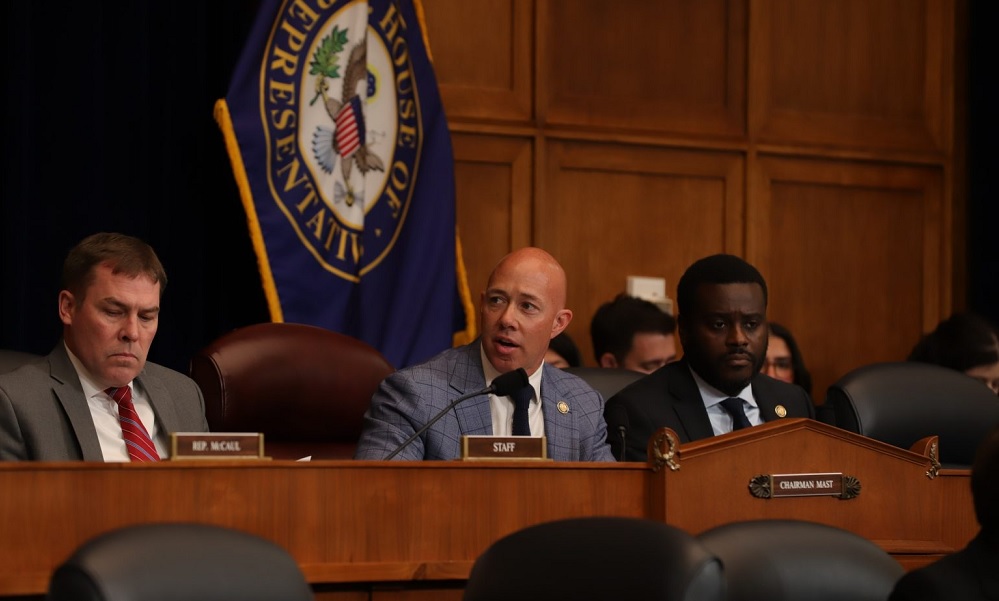
The US House Foreign Affairs Committee voted on Wednesday in favor of a bill to prevent American aid falling into the hands of the Islamic Emirate of Afghanistan (IEA).
This issue has been a key focus for House Republicans since last Congress when lawmakers were made aware that weekly cash shipments of $40 million were being sent to Afghanistan’s IEA-controlled central bank.
Additionally, the Special Inspector General for Afghanistan Reconstruction reported in May 2024 that more than $10 million had been paid to the IEA in the form of taxes since they regained power in Afghanistan in August 2021.
“The United States has sent over $5 billion in cash to Kabul,” said Rep. Tim Burchett who sponsored the bill. “This money has been taxed and stolen by the Taliban (IEA), yet we continue to send it oddly enough. That definitely needs to end. The State Department needs to ensure that that any aid, whether financial or material, does not go to terrorists in Afghanistan. We need to have a clear understanding of the influence the Taliban has on, not just international aid, but the Afghan banking system as well.”
House Foreign Affairs Committee Chairman Brian Mast said: “This bill requires the Department of State to develop and implement a strategy to discourage foreign countries and non-government organizations, NGOs, from providing financial and material support to the Taliban (IEA). That’s important for the United States of America. We don’t have an embassy there. We don’t have diplomatic relations with the Taliban (IEA) – they are a terrorist organization.”
He added: “This includes by using U.S.-provided foreign assistance to discourage countries and organizations from providing support to the Taliban (IEA). We don’t want American tax dollars, in any way, shape or form, going to the Taliban (IEA).”
The bill, which has 23 co-sponsors, advanced to the House floor.
The Islamic Emirate has previously rejected claims of interference in international assistance to Afghanistan.
Latest News
Blast at Kandahar police HQ leaves several injured
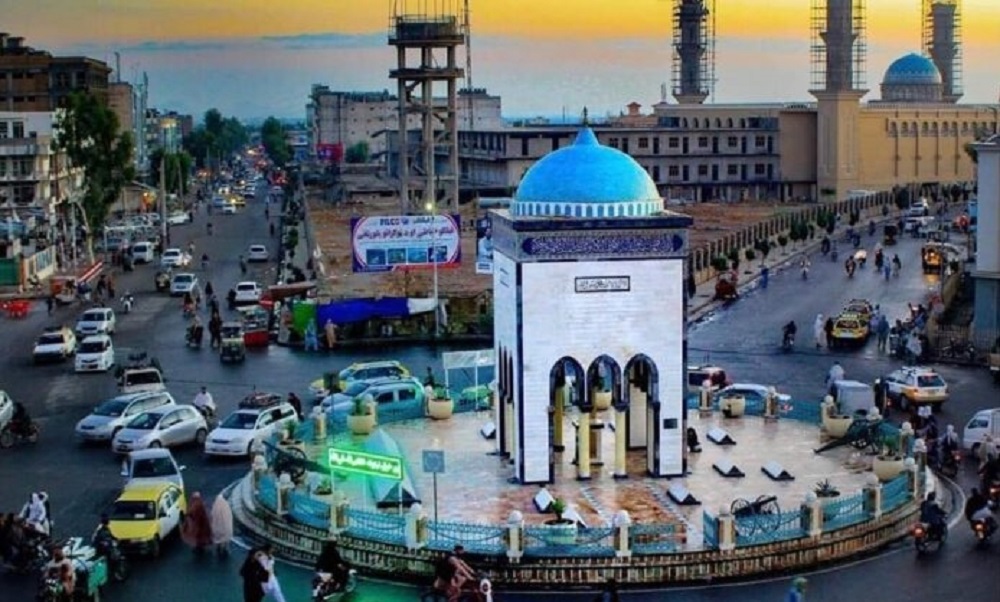
An explosion occurred at police headquarters in Afghanistan’s southern Kandahar province on Thursday morning, injuring several guards, local officials said.
Asadullah Jamshid, spokesman for Kandahar police, said on X that the blast was triggered by container-loaded old ammunitions belonging to the counter-narcotics department.
He said that several guards were injured and windows of several rooms were broken as a result of the explosion.
Jamshid said security forces and firefighters rushed to the scene to prevent further explosions.
-
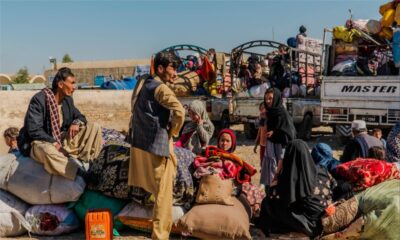
 Latest News4 days ago
Latest News4 days agoUN rights experts call on Pakistan to stop removal process of Afghan refugees
-

 Science & Technology4 days ago
Science & Technology4 days agoMeta releases new AI model Llama 4
-
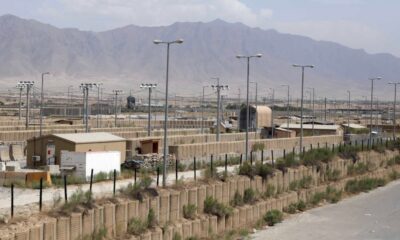
 Latest News3 days ago
Latest News3 days agoIEA rejects reports of US military planes landing at Afghanistan’s Bagram Air Base
-
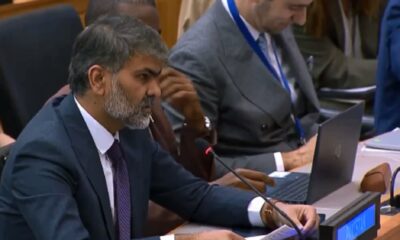
 Latest News5 days ago
Latest News5 days agoPakistan urges global community to block arms flow to militant groups in Afghanistan
-

 Sport4 days ago
Sport4 days agoAfghanistan Under-19s beat Nepal by 1 run in second ODI, win series
-

 World4 days ago
World4 days agoAnti-Trump protesters gather in Washington, other US cities
-

 Regional4 days ago
Regional4 days agoRains add to challenge for Myanmar quake relief, toll at 3,471
-

 Latest News3 days ago
Latest News3 days agoTrump’s tariff pressure on Afghanistan ‘will impact economic growth’
























